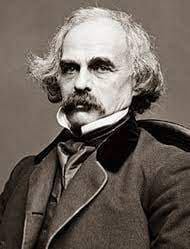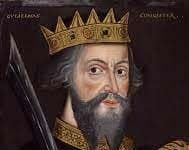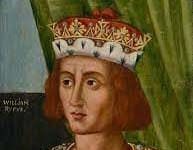Nathaniel Hawthorne | Brief Biography
Nathaniel Hawthorne | Brief Biography
Nathaniel Hawthorne (1804-1864) was an American novelist and short story writer, widely considered one of the greatest American writers of the 19th century. Born in Salem, Massachusetts, Hawthorne’s ancestors were some of the first settlers in the Massachusetts Bay Colony, and his upbringing was steeped in Puritanism, a strict religious and moral code. This background is evident in much of Hawthorne’s work, which explores the themes of sin, guilt, and morality.
Hawthorne was educated at Bowdoin College in Maine, where he formed a close friendship with future American President Franklin Pierce. After graduation, Hawthorne worked as a surveyor and customs inspector, but his true passion was writing. In 1828, he published his first book, a collection of short stories called “Fanshawe.” However, the book was not a commercial success, and Hawthorne turned to writing for magazines and journals to support himself.
In 1837, Hawthorne published “Twice-Told Tales,” a collection of short stories that received positive reviews and established him as a significant voice in American literature. He followed this success with the publication of “The Scarlet Letter” in 1850, a novel set in the Massachusetts Bay Colony that explores the themes of sin, guilt, and redemption. The novel was widely praised and is now considered one of the great American novels.
Hawthorne continued to write throughout the 1850s, publishing novels such as “The House of the Seven Gables” (1851) and “The Blithedale Romance” (1852). In 1853, he was appointed American consul in Liverpool, England, a position he held until 1857. During his time in England, he wrote: “The Marble Faun” (1860), a novel set in Italy that explores the themes of beauty and morality.
Hawthorne’s works are characterized by their dark and melancholic tone, and their focus on the psychological complexities of human nature. He was a master of the allegory and often used symbols and images to explore complex themes. His writing is often described as “Puritanical,” as he was deeply influenced by the strict religious and moral code of the Puritans.
Hawthorne died on May 19, 1864, in Plymouth, New Hampshire, at the age of 59. Despite his relatively short career, he remains one of the most important American writers of the 19th century, and his works continue to be widely read and studied today. 0 0 0.
Sources:
“Nathaniel Hawthorne.” Encyclopædia Britannica. Encyclopædia Britannica, Inc., n.d. Web. 12 Feb. 2023.
“Nathaniel Hawthorne.” The Literature Network. Jalic Inc., n.d. Web. 12 Feb. 2023.
“Nathaniel Hawthorne.” Biography.com. A&E Networks Television, n.d. Web. 12 Feb. 2023.
“Hawthorne, Nathaniel.” American National Biography Online. Oxford University Press, n.d. Web. 12 Feb. 2023. ***
N.B. The article originally belongs to the book entitled ‘Biographies of Writers Around the World‘ by Menonim Menonimus.
Books of Biography by M. Menonimus:
- The World Writers-Brief Biographies
- Introduction to World Writers
- Introduction to World Personalities
- Love of Reputed Persons
- Brief Biographies of Prominent Bengali Writers
- Brief Biographies of Eminent Monarchs
- Brief Biographies of Ancient Thinkers and Writers
- Brief Biographies of Eminent Generals and Conquerors
- Biographies of Writers Around the World ..
Books of Literary Criticism by M. Menonimus:
- World Short Story Criticism
- World Poetry Criticism
- World Drama Criticism
- World Novel Criticism
- World Essay Criticism
- Indian English Poetry Criticism
- Indian English Poets and Poetry Chief Features
- Emily Dickinson’s Poetry-A Thematic Study
- Walt Whitman’s Poetry-A Thematic Study
- Critical Essays on English Poetry
- Tawfiq al-Hakim’s Novel: Return of the Spirit-An Analytical Study
- Tawfiq al-Hakim’s Novel: ‘Yawmiyyat Naib Fil Arayaf’-An Analytical Study
- Analytical Studies of Some Arabic Short Stories
- A Brief History of Arabic Literature: Pre-Islamic Period (500 AD-622 AD)
- A Brief History of Arabic Literature: Early Islamic Period (622 AD-661 AD)
- Reviews on William Shakespeare’s Works
- Reviews of Charles Dickens’ Works
- Reviews of John Milton’s Literary Works
- Reviews of Some Iconic Travelogues …
Additional Searches:
- Famous Writers
- The Lives of the Poets
- 10 Best Generals of All Time
- Muslim Leaders in History
- Best Military Commanders of All Time …











